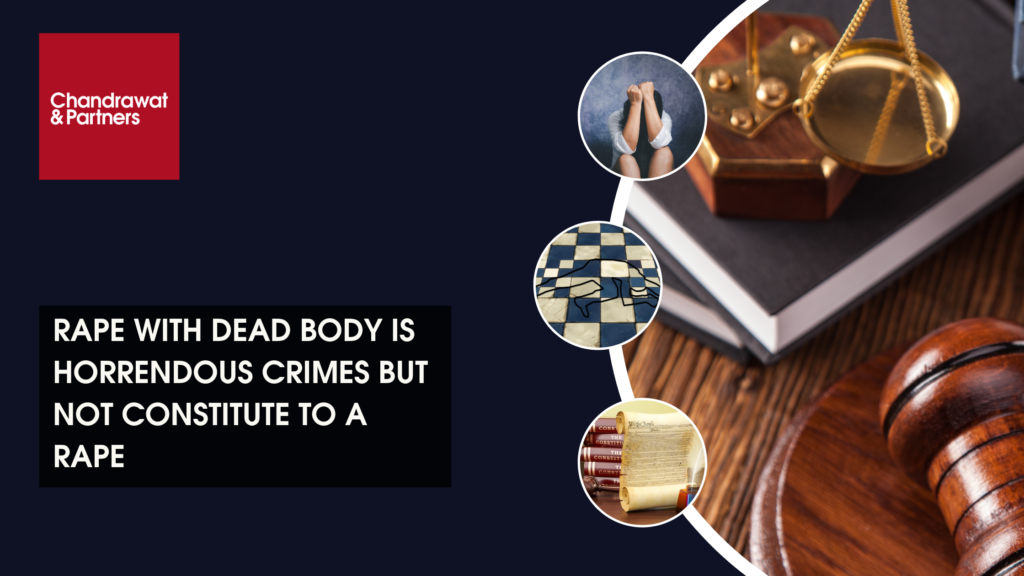Home > Recent Judgements > Rape With Dead Body Is Horrendous Crimes But Not Constitute To A Rape
DEC 31, 2024
BACKGROUND
The Chhattisgarh High Court in the case of Neelkanth @ Neelu Nagesh vs. State of Chhattisgarh, handed down a historic ruling that addressed horrendous acts that tremble conscience of society. The ruling highlights the legal loopholes pertaining to crimes against deceased people in addition to illuminating the essence of justice. The judgment highlights the legal loopholes pertaining to crimes against deceased people in addition to illuminating the essence of justice.
Two appellants were found guilty for raping, killing, and then improperly treating the body of the victim, a 9-year-old girl belonging to a Scheduled Caste community.
Appellant no.1 was convicted for the rape and murder of the minor.
Appellant no.2 was accused of aiding in concealing the body and committing sexual acts on the victim’s corpse (necrophilia).
Sections 363, 376(3), 302, 201 of the IPC, Section 6 of the Protection of Child from Sexual Offence (“POCSO”) Act, and Section 3(2)(v) of the Schedule Caste/Schedule Tribe (“SC/ST”) Act were used by the trial court to sentence appellant no.1 to life in prison. However, since necrophilia is not punishable by current Indian law, appellant no.2 was only found guilty under Section 201 of the Indian Penal Code (“IPC”).
(Section 376 IPC states punishment for rape- Whosoever commits rape shall be punished with imprisonment which shall not be less than ten years but extend to imprisonment for life also liable for a fine).
KEY ISSUES
- Whether the trial court’s ruling was upheld by the evidence against the accused?
- Whether the sexual acts of Appellant no.2 on the victim’s dead body is prosecuted under current legislation, particularly Section 376 of the IPC?
JUDGEMENT OF THE CASE
Appellant no.1 convictions and punishments from the trial court were justified by the Chhattisgarh High Court. Both the accused’s and the victim’s mother’s appeals were denied.
The court upheld the prosecution’s use of direct and indirect evidence, such as Deoxyribonucleic acid (“DNA”) tests, to establish his guilt beyond a reasonable doubt with regard to Appellant no.1
Furthermore, in respect of Appellant no.2, the court decided that necrophilia did not Come under the definition of rape of Indian law because the victim was not alive when the act was taken place, but acknowledging the moral reprehensibility of his actions.
OBSERVATION
The court emphasizes the utilization of scientific device such as DNA profiling in assisting the prosecution’s case, highlighting DNA evidence as a pillar of justice.
The court indicated that although it denounces necrophilia as a horrible practice, sexual actions involving corpses are currently not illegal in India. It became clear that in order to address such serious acts, legislative adjustments were required.
The court elucidate its duty in applying current rules rather than enacting new ones, even if it sympathized with the victim’s family and the fury in society.
For more information or queries, please email us at
enquiries@chandrawatpartners.com




